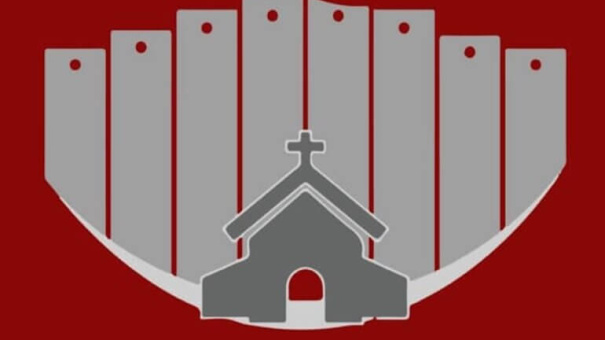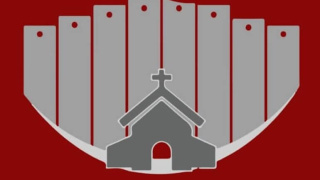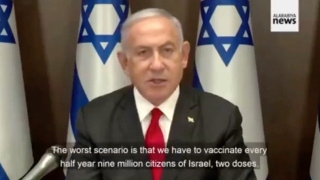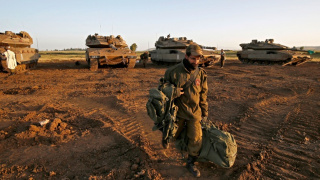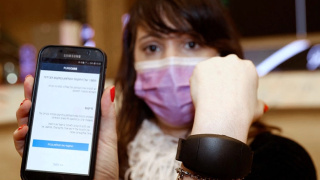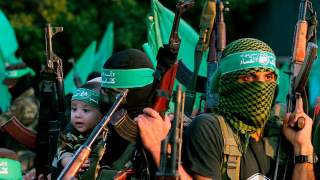Palestinian Christians issue historic ‘Statement of Repentance and Hope’
On Saturday, June 12, a call titled “Statement of Repentance and Hope” was shared via email and social media to hundreds of Palestinian Christian leaders and clergy. The call states: “This statement was written with urgency by Palestinian Christian young adults from all across the land, expressing repentance and hope regarding the ongoing injustices. If you identify with this statement, it is yours to hold as well. We urge all to read and reflect seriously on its call.”
The call was initiated by the Christ at the Checkpoint Young Adult group (which I am a member of) and which is an offshoot of the Christ at the Checkpoint Conference which takes place every two years in Bethlehem. The conference has inspired many young adults to cultivate a Palestinian Christian response to the conflict, colonialism and in particular Christian Zionism.
A call to action
The statement (attached below) calls for the Palestinian Christian community and leadership to reflect and repent on what has been an inadequate and passive response to the injustices committed against the Palestinian people over the past two months. We have seen lukewarm statements, calls for calm, and vague prayers for peace. These are not only insufficient but contradictory to Biblical passages calling to stand with the oppressed.
The statement also calls for non-violent action and resistance to these injustices. Much of Palestinian Christian activism has been too focused on behind-the-desk activities with a Western focus. We need to back up our books, teachings, statements and most importantly principles with action.
Furthermore, there is a special focus on combating the “tribal mentality” that has plagued Palestinian society; including the Christian community. As Palestinians draw on their diverse sources of inspiration to call for justice, we must stop isolating ourselves in bubbles and do so in unity. Lastly, the statement ends with eight calls to action in order to move forward.
Inspired by Black liberation theology
Many of the up and coming Palestinian Christian theologians and activists have been studying Black Liberation Theology (in particular James Cone’s God of the Oppressed) and have come to the conclusion that we need to radically rethink how we engage the oppressive colonial system we are under. This, combined with the overall inaction and passivity, has been the main catalyst for the young people to speak out and attempt to invoke some type of change.
Just as the Civil Rights movement had a strong Christian presence in its resistance to racial supremacism; we must find it as well in the Palestinian context. There is a lot to say about comparing and contrasting these two different situations, but the bottom line is that young Palestinian Christians have a new understanding of their situation and the need to shake off the shackles of Western theology and influences which are meant to pacify our people.
Lastly, young Palestinian Christian voices that have been publicly critical of our leadership have been censored and threatened. Two young women (one of which is my wife) have written two articles criticizing the tribal mentality and inaction of Evangelical churches across the land. Their articles were taken off Facebook pages and my wife was threatened with legal action by one of the main pastors. The silencing of these women was reprehensible and was a major motivation to speak louder.
Time to unite and strategize
To our knowledge, no one within our community has ever produced a statement like this. Public self-critical statements are unusual here and will likely cause a lot of negative reactions. This could stir some in our community from their slumber and create conversations about our role in this conflict. Demographically, we are a tiny portion of the population in this land, yet one could argue that the Palestinian Christian’s influence internally and externally is huge. Are we using our full potential?
Furthermore, if we are expecting the international community to end the Occupation and discrimination in this land for us, we are sadly mistaken. It is time for us to unite together, rethink our approach to this conflict and rebuild our strategy. We must also break the tribalist mentality, regardless of how others treat us, and stand strong with our convictions.
Our ultimate desire is to ignite some hope for those that read that statement and agree with it and challenge those that are complicit with our passivity. We are a small group of people but we are inspired by the new awakening that is taking place across Palestinian society and we hope to make a small contribution to it.
Statement of Repentance and Hope
“Away with the noise of your songs! I will not listen to the music of your harps. But let justice roll on like a river, righteousness like a never-failing stream!” (Amos 5 : 23-24)
We Palestinian Christian young adults from the 48 territories, Jerusalem, the West Bank and Gaza; cannot remain silent with what is happening in our community. Based on our understanding of our spiritual, ethical and national responsibilities, we declare the following:
First, we acknowledge our guilt and repent our own passivity, inaction and lack of solidarity with those that have suffered the worst from the colonial repression in recent events and throughout the years. We have failed in being salt and light in the land, and therefore repent our transgressions through commitment to action. Those who hold positions of power within our community have demonstrated significant shortcomings in their statements and actions regarding the continued injustices committed against Palestinians: in Jerusalem, Gaza, the West Bank, against refugees and 48 Palestinians.
Second, while we are non-violent and detest the suffering of all innocents; we refuse to fall into the trap of equating the violence and dominance perpetrated by the system, and the violence of the oppressed reacting to the system. Not taking a firm, honest stance against unjust systems and trying to adopt neutrality by simply condemning all violence, is either a statement of ignorance or wilful support of the powerful.
Third, we have prayed for peace, calmness, and patience; however, we must recognize that peace cannot exist without true justice. Therefore, while we recognize the importance of prayer, it mustn’t call for peace which returns to a status quo of inequality, but for a transformative peace which recognizes the intrinsic connection between peace and justice and leads to true reconciliation.
Fourth, the anger of the Palestinian people is a holy rage- a righteous anger (Ephesians 4:26-27), that shakes off (intifada) the yoke of oppression in the form of Apartheid, settler-colonialism and oppression of all Palestinian people. Our political leadership and those in power are complicit in this oppression and have served the powerful directly and indirectly. Jesus is present today with Palestinians who are suffering all over the land and resisting their oppression (Matthew 25:31-46).
Fifth, we must stand up for our own dignity and the dignity of those we share our lives and pain with, whose blood cries out from the ground. This is a time of nonviolent resistance through action which will bear witness to the God of the oppressed built on the Palestinian tradition of steadfastness (Sumud).
Sixth, we must be a praxis-oriented community which foregrounds a commitment to those who are voiceless and oppressed; Our statements, theological books, and sermons must be rooted in the reality of our context and they are only validated by further action, otherwise they are empty.
Seventh, we must stop with our tribal mentality, which attempts to isolate ourselves from our neighbors and the reality around us. We obsess over in-fighting for power, status, and money which we must be prepared to lose, as disciples of Jesus and for the Kingdom of God. Our tribal mentality is used by our oppressors and we must unite in solidarity with one another (John 17:21).
Lastly, we are embarking on a new chapter where hope through resistance (Muqawama) is present and violence perpetrated by our oppressors is becoming more brutal. Palestinians across the land are standing up for their own humanity despite being lynched, bombed and displaced. The fragmentation of Palestinians in the Occupied Territories, Jerusalem, 48 territories, and the diaspora is dissolving, and a renewed sense of unity is emerging.
Therefore, we call urgently:
- To repent for our shortcomings and inaction in the face of injustice. We commit to continued self-evaluation, and actions in order to truly voice the truth.
- To immediately and honestly self-reflect on the general failures of our leaders, churches and community.
- To raise and empower the voice of the younger generation on these issues, especially women. Failure to incorporate these voices and attempts to censor them will ultimately lead to empty churches and frail organizations. We will not stay silent.
- To confront anti-Muslim attitudes and any other approach which excludes the other.
- To decolonize our churches from Western money and influence that serve to pacify our community; especially Christian Zionism.
- To firmly speak truth to power, including our own leadership.
- To develop actions that battle the injustices committed against the most vulnerable in our society and a commitment to solidarity with the oppressed.
- To unite together and with all those that seek a transformative peace that promotes justice.
